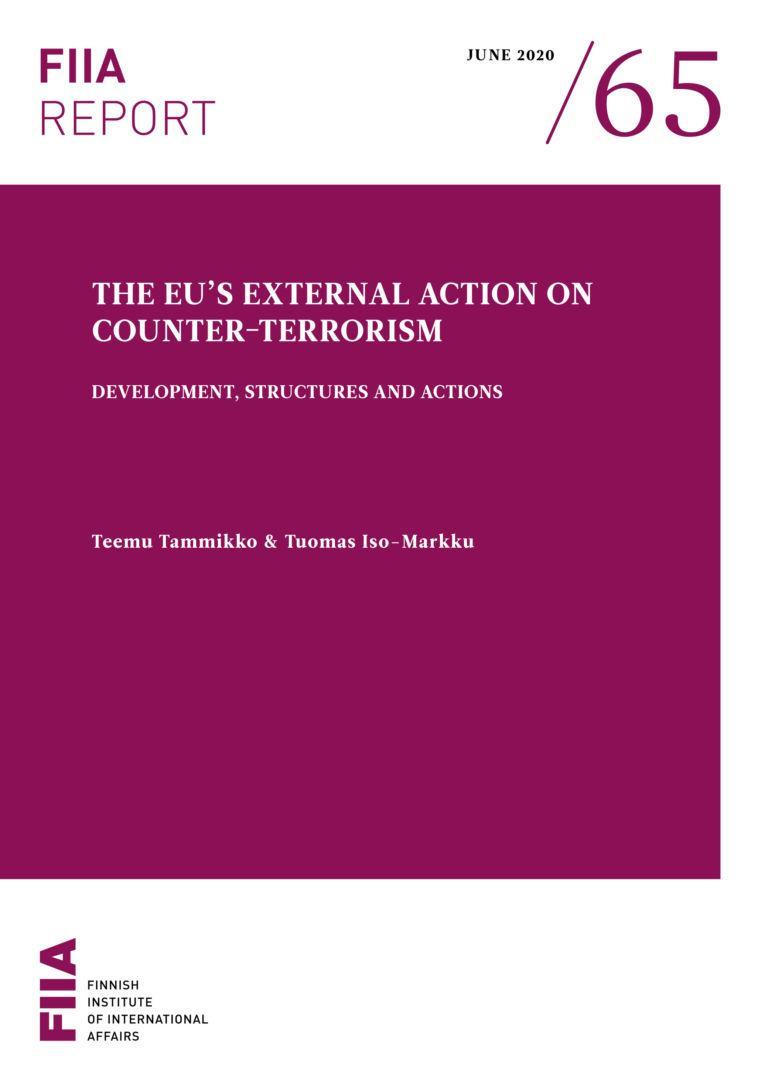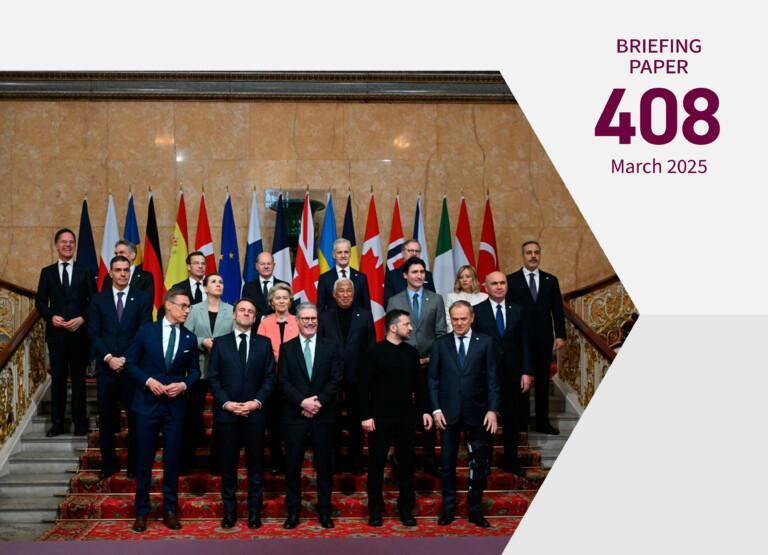
Terrorism is one of the most significant security threats in Europe. As it is transnational in character, countering it requires both cooperation between EU member states and widespread external action. This report examines the latter by focusing on the concepts, development, actors and structures, as well as the practices of the EU’s external action on counter-terrorism.
The EU’s external action on counter-terrorism is performed in four different frameworks: diplomacy, crisis management, external aid, and the external action of the EU’s internal security agencies. All of these have their own policy-making structures with different actors and mandates, and hence the overall picture is complex. Several ongoing institutional reforms add to the complexity.
Although the EU’s external action on counter-terrorism has its challenges and limitations, the EU has shown that it is capable of adapting its approach to changing needs. The EU can add value to the counter-terrorism action of its member states by developing and promoting common concepts and practices, maintaining an overview of the threat, and facilitating cooperation with different partners. However, the EU’s external action on counter-terrorism is dependent on the ability of the member states to agree on common goals and the ability of the different EU actors to coordinate their actions.
This publication is updated version of the Finnish report published as part of the implementation of the Government Plan for Analysis, Assessment and Research in January 2020.











